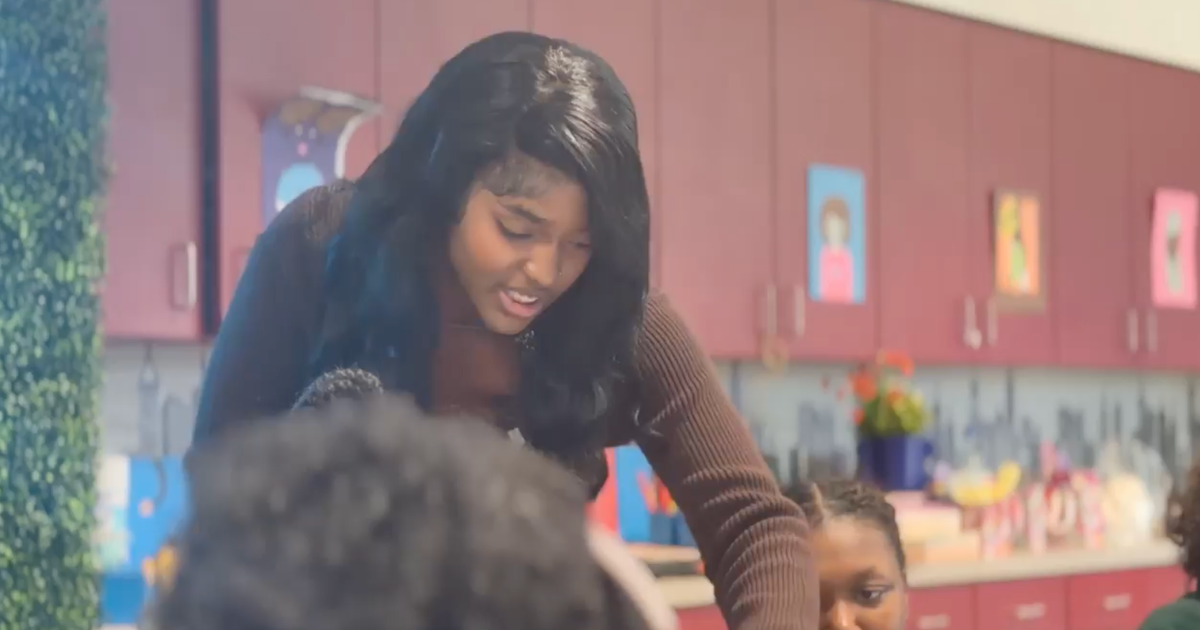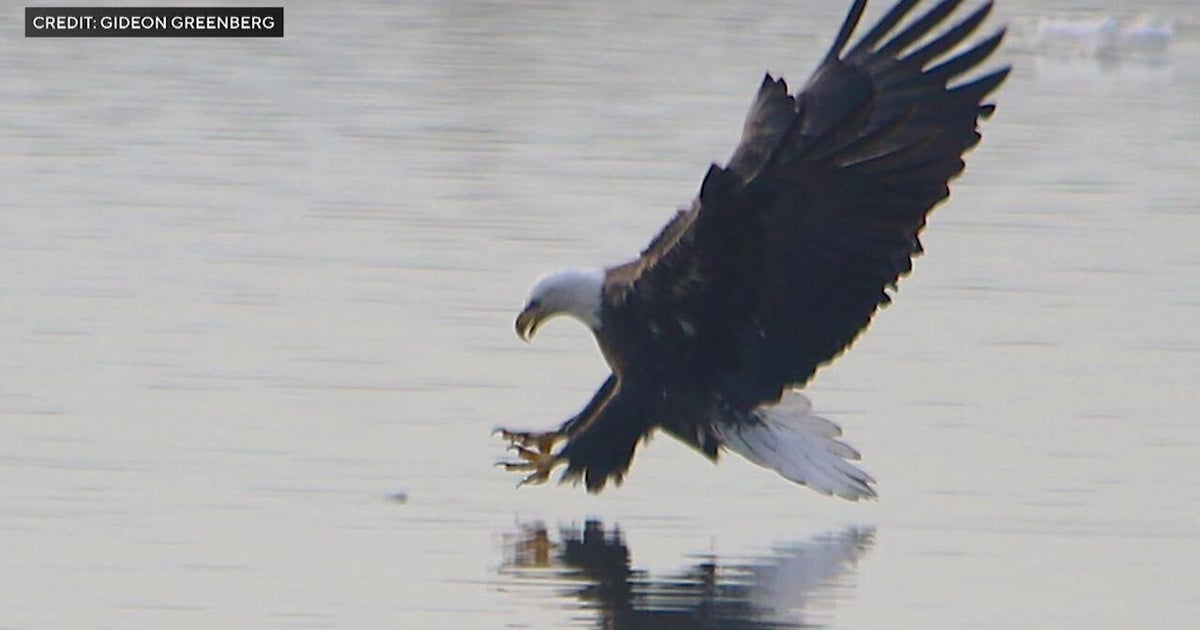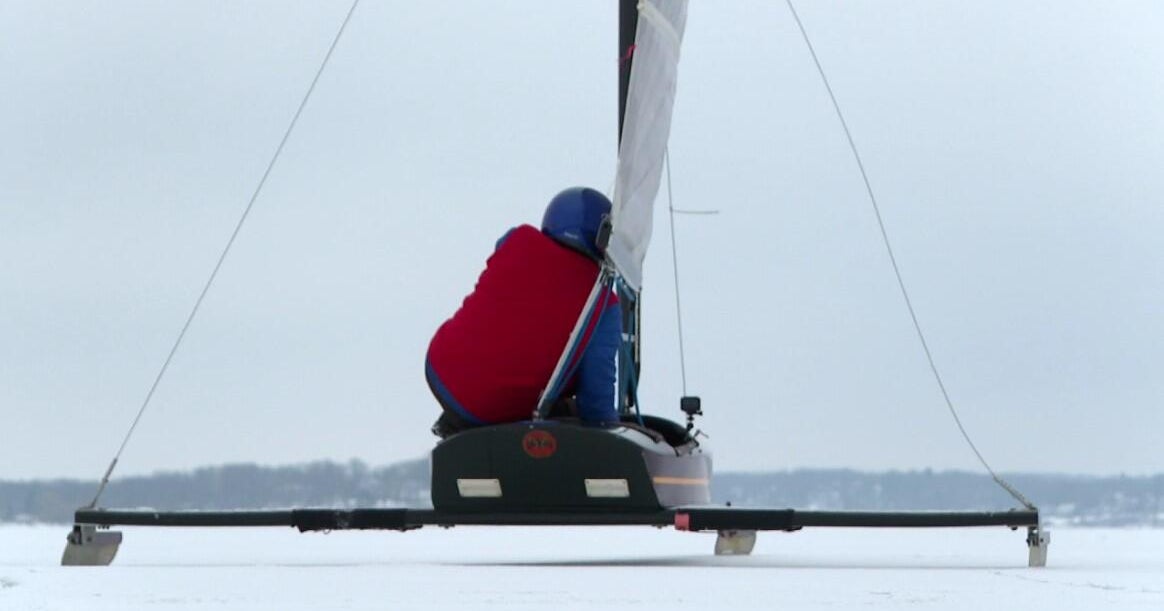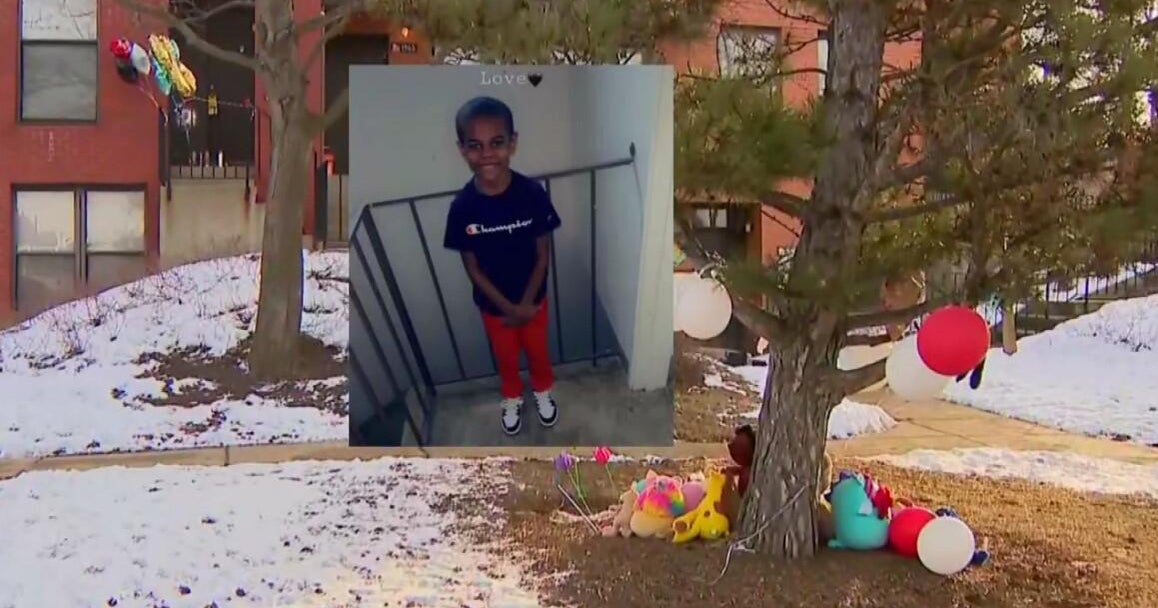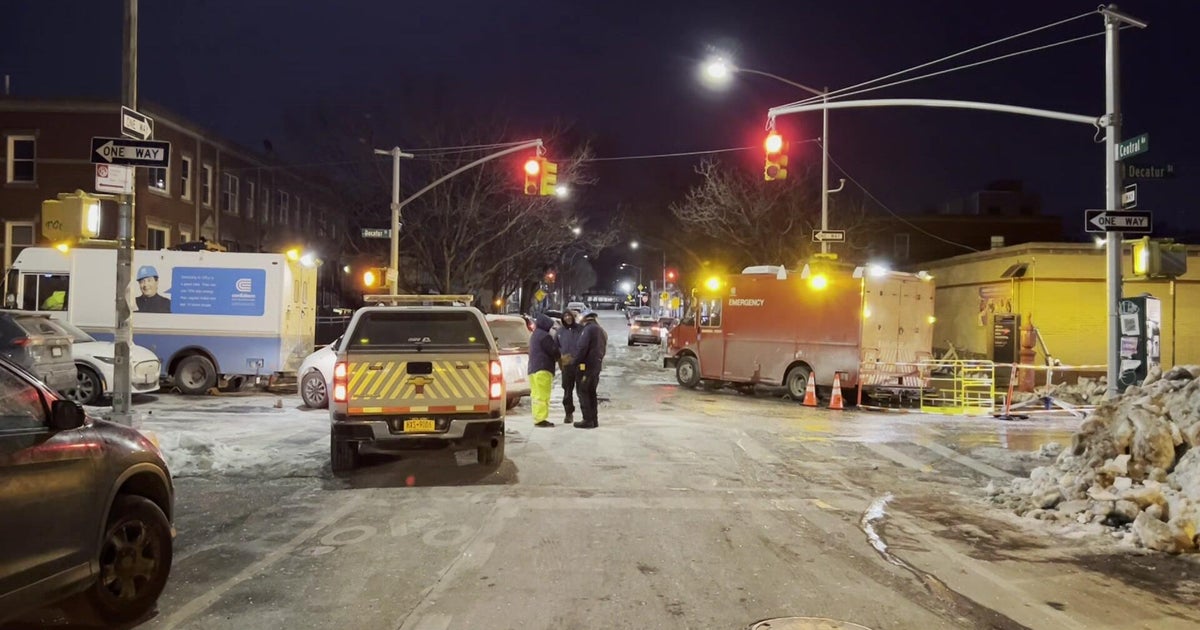Hands-On Learning Takes Classroom Onto Frozen Lake
ST. PAUL, Minn. (WCCO) -- It's one thing teaching environmental science from a textbook. But experiencing the lesson firsthand is even better.
That's the idea behind a unique partnership between Minnesota schools, the Department of Natural Resources and the Minnesota chapter of Trout Unlimited.
"What's running off into that water that makes the weeds grow," asks instructor, Benji Kohn.
Kohn is MTU's education coordinator and he knows that without clean water, fishing opportunities will suffer. Teaching that to Hazel Park Academy middle school students means they'll trek out into the cold.
Sitting on buckets on a frozen Beaver lake, staring down a hole, is something most of the kids never dreamed of.
"I was a little bit nervous because I've never been ice fishing," eighth grader Cato Yang said.
Cato's classroom is now a fishing pole in hand as he jigs for crappies and sunfish.
"You just got to wait and jig it a little bit. Since you don't have any gadgets [fish locators] to know if a fish is around you just got to wait," Yang explains like a veteran angler.
Yet, even if the fish don't bite Cato and his classmates will catch a valuable lesson.
"We're going to do a little water test today and they're going to bring it back to the classroom and do some dissolved oxygen tests on it," said Kohn to the students gathered around inside his portable ice shelter.
They want to know if the oxygen levels at different water depths vary and if so, why?
The feeling is that the lower the dissolved oxygen, the fewer the fish.
"When I pull this cord real hard it should pop and collect the water," explains Kohn.
Back in the warmth of their classroom students measure the oxygen levels and check on their own captive fish. In a nearby aquarium the class is raising their own baby rainbow trout for study.
"We only give them a tiny amount – not all of them are ready to eat," the instructor cautions while feeding the fish.
Raising rainbows can nurture a new generation of environmental awareness among these students.
"More importantly, we're trying to convey to the students and teach them the importance of water quality and their role in their communities pertaining to watersheds," said the DNR's Janine Kohn, who manages Project WET or Water Education for Teachers program,
It's a positive and productive way to take lessons from a classroom onto a frozen Minnesota lake, allowing students to learn by touching and doing.
When asked what type of fishing he prefers, Cato Yang laughs and replies, "I like regular fishing because it's warmer."
Funding for Trout Unlimited's program will expire at the end of the years unless the legislature approves another three-year grant.
